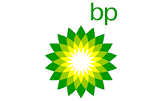$BP $WTI $OIL
#BP #Iraq #OilFields #Kirkuk #OilProduction #EnergySector #CrudeOil #OilInvestment #GlobalMarkets #TechnicalAgreement #EnergyTransition #Geopolitics
BP and the federal government of Iraq have reached a significant milestone by agreeing on key technical terms for redeveloping the vast oil and gas fields in Kirkuk. These fields, which hold billions of barrels of recoverable oil, are critical for Iraq’s energy strategy and global crude supply dynamics. According to a statement by BP Executive Vice President William Lin, shared on Thursday, the preliminary deal marks a step closer to finalizing a fully termed contract. Bloomberg reported that negotiations are expected to conclude by early next year. For BP, this agreement reflects its strategic focus on collaborating with resource-rich nations, especially in the Middle East, to enhance production efficiency and secure long-term production potential. The finalized deal is expected to boost Iraq’s crude oil output, further solidifying its position as a major global exporter and contributing to global energy market stability.
The redevelopment of Kirkuk’s oil fields is poised to serve as a game-changer for Iraq’s economy as its fossil fuel sector contributes 85%-90% of its revenue. With geopolitical tensions and global demand fluctuations shaping crude oil prices, Iraq’s partnership with BP could reinvigorate Kirkuk’s production potential, adding substantial volumes of crude to global markets. Analysts suggest this project could eventually place downward pressure on crude prices, particularly for Brent and WTI benchmarks, though the timeline for such effects depends on the redevelopment pace. The news comes during a period of heightened oil market volatility influenced by OPEC+ supply cuts, U.S. inventory levels, and macroeconomic concerns. A successful agreement also underscores BP’s resilience and long-term investment strategy amidst growing calls for energy diversification and decarbonization.
For BP, the deal is strategically significant, allowing it to maintain a foothold in one of the world’s most resource-abundant regions. This comes as BP recalibrates its global portfolio under CEO Bernard Looney’s leadership, balancing production of hydrocarbons with its energy transition goals. Investors may find the project to be a barometer of BP’s operational efficiency and ability to deliver competitive risk-adjusted returns in politically sensitive areas. However, given Iraq’s challenging operational landscape, including security risks and infrastructure limitations, the financial and logistical hurdles for BP remain substantial. Market watchers are likely to monitor how this agreement impacts BP’s stock ($BP) over the coming months, particularly as further updates emerge regarding contract finalization.
From a geopolitical and energy market perspective, the BP-Iraq agreement could influence regional and international dynamics. Kirkuk, being a historically contested region, holds strategic importance not just for Iraq but also for energy security in Europe and Asia. The project could address local economic concerns by providing jobs and revenue streams, potentially improving stability in the region. Energy analysts note that while this redevelopment enhances short- to medium-term oil supply chains, it also highlights the global energy sector’s dichotomy—balancing the immediate demand for hydrocarbons against the ambitions of a low-carbon transition. Overall, BP’s potential to bring Kirkuk’s resources back online could have both immediate and ripple effects on the energy markets and global economic outlook.











Comments are closed.